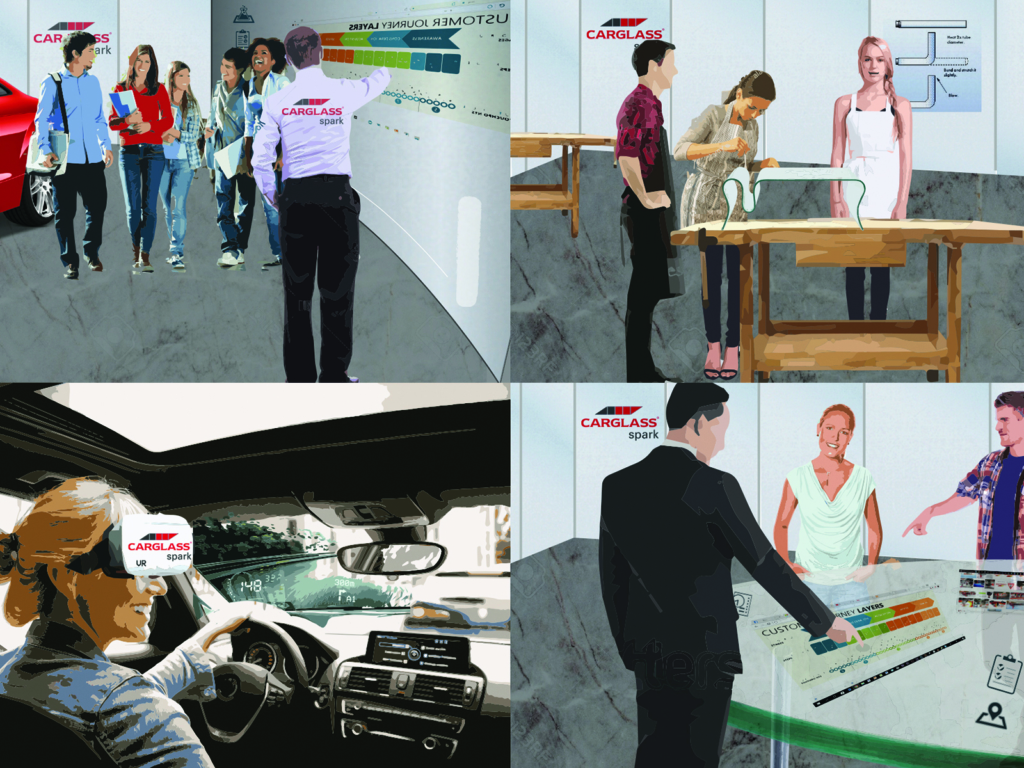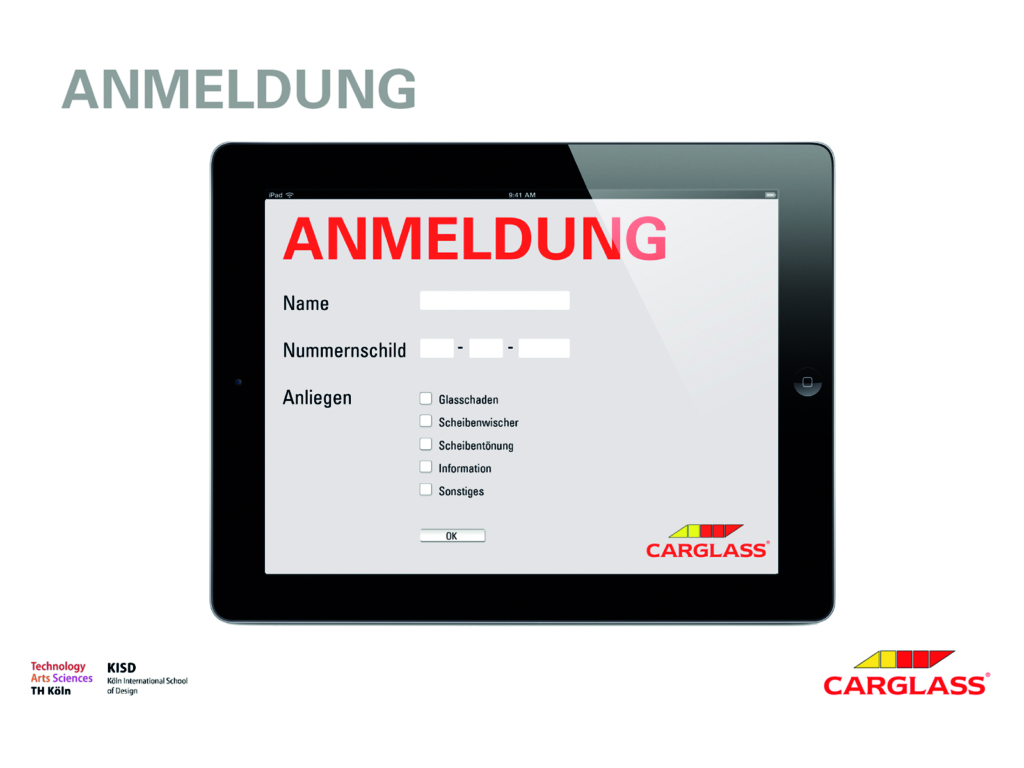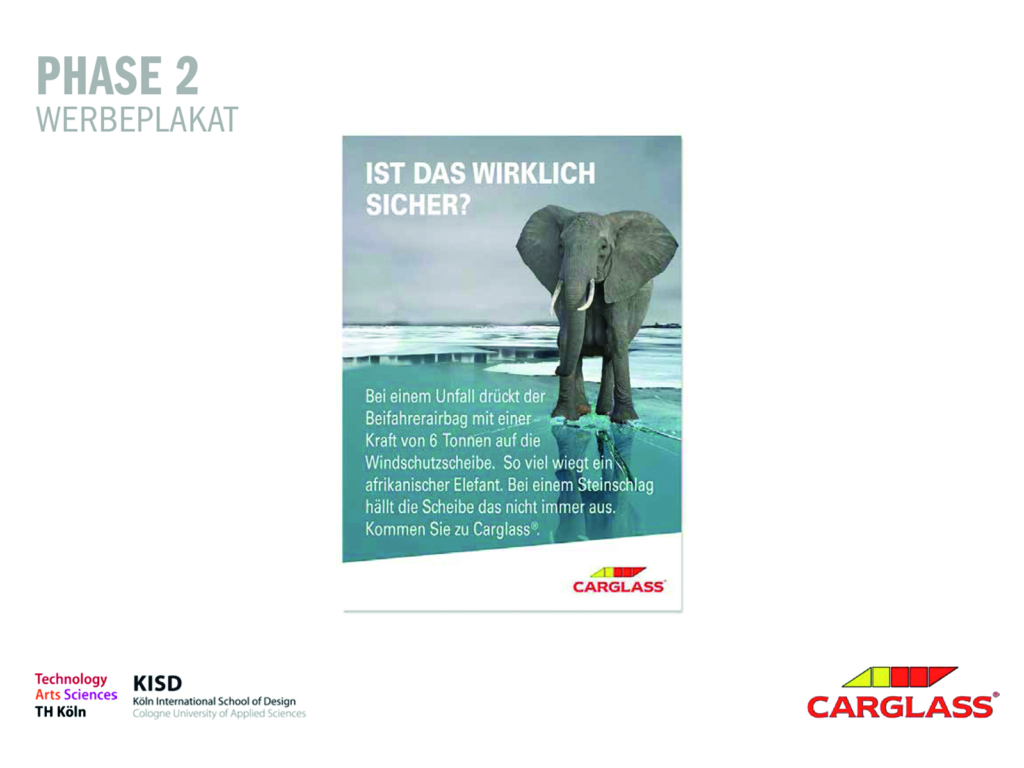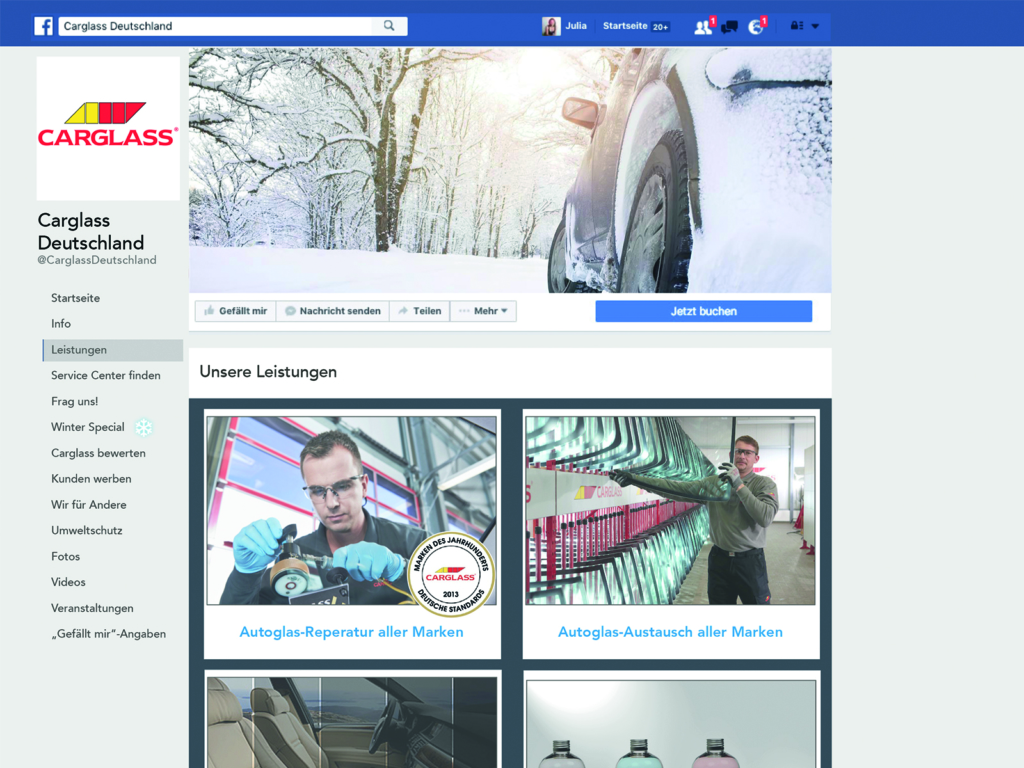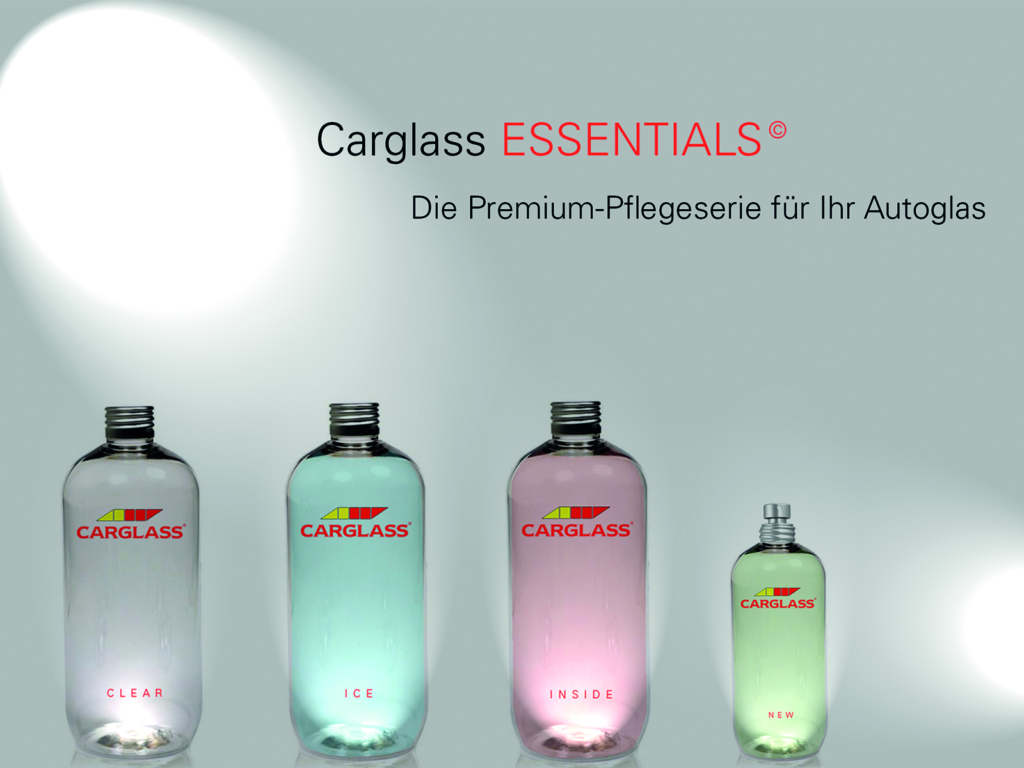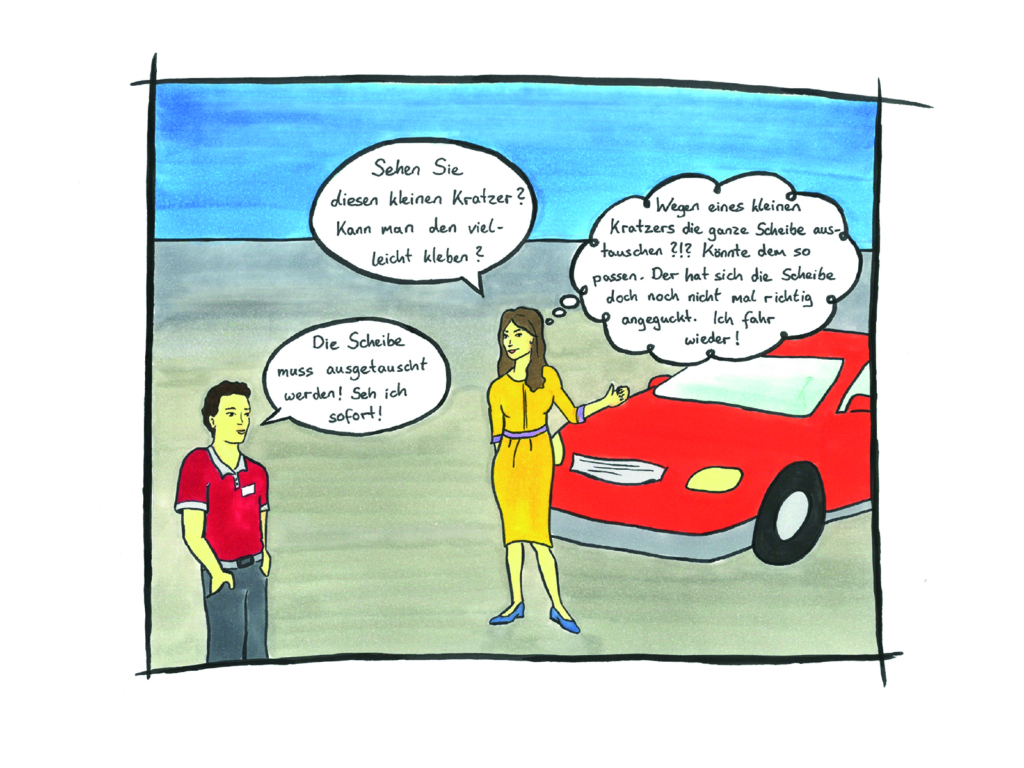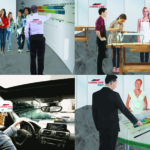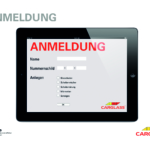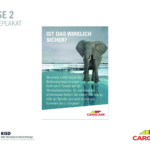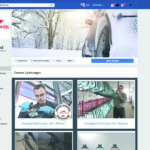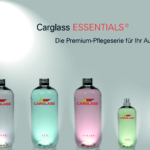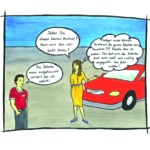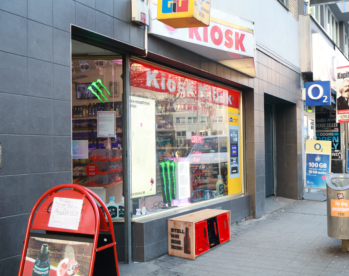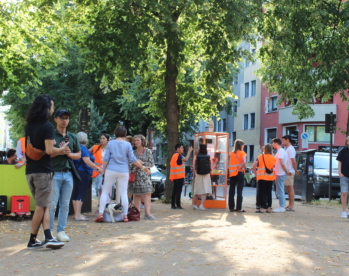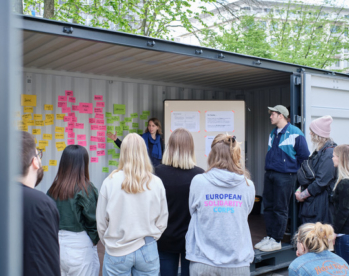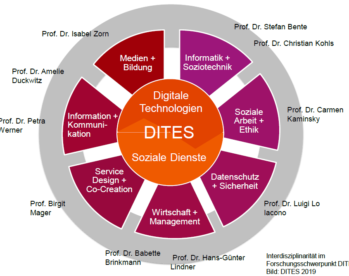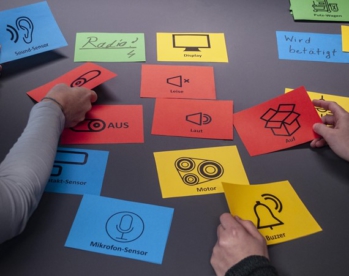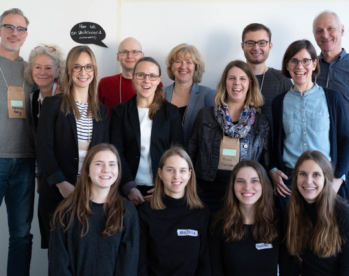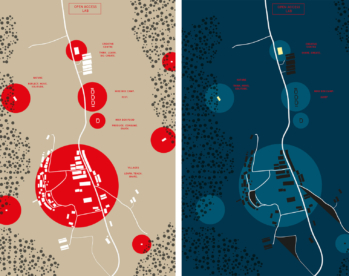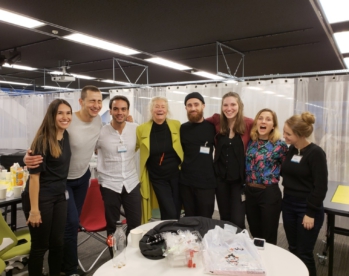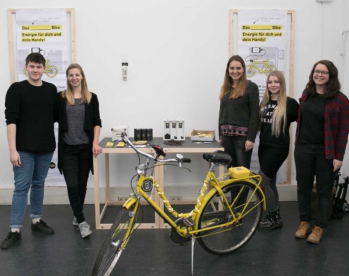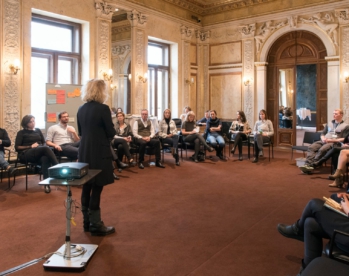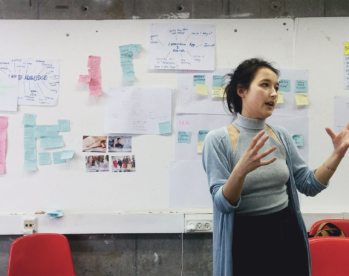If glass damage occurs to a car, many drivers ask for help from the specialist company for those cases – Carglass®. Customers often decide to go directly to the nearest service center (drive-in). However, and despite both the existing demand for repair and professional expert advice given, some orders do not come into effect. Customers then leave the service center still with a damaged car. This is not only a loss of order for Carglass®, but at the same time a risk for driver and passengers. How does it thus come that this damage is not repaired?
This case is a classic baseline for service design methods to be applied and explored. They are asking for:
– what are the customers’ experiences
– how can the service processes at Carglass® be improved
– what can be respective excitement factors for customers
– and how can the employees be supported?
During exploration, the 16 project students could draw on existing knowledge from similar service design projects with the provider “service works”. Based on these results and through several interviews and monitoring studies, students got profound insight into the service processes at Carglass® both in the service centers and call centers.
A broad range of service design methods were adopted and helped students to develop different solution options for Carglass®. At the same time, the artist Lutz Frisch was kind of sparring partner during creation phase. Participants developed videos for staff training making it easier for employees to empathize with customer needs and their immediate conceptional world. It was also the process of communication that was improved in the service centers in order to demonstrate customers the high relevance of safety issues in the event of glass damage. Appropriately, some other student group developed useful additional Carglass design products. Some other student group designed the Carglass® Facebook site in order to let the company quickly provide online content on relevant issues and reach respective target groups. A further conceptional tool was developed in order to optimize customers time in the service centers – a host system with smart registering tools orientated at customers needs and being able to quickly identify and transmit customer data. Leaving day-to-day business, there was also the idea of developing a Carglass® Innovation Center which informs visitors and employees about current topics of car-related glass damage. Some of these approaches were put into practice by Carglass® in cooperation with the students involved.
The mid-term project was undertaken in close collaboration with Carglass® and Bettina Thielen (service works).

